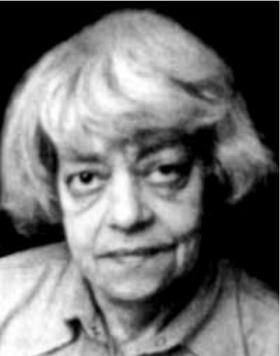Larisa Bogoraz facts for kids
Quick facts for kids
Larisa Iosifovna Bogoraz
|
|
|---|---|
| Лариса Иосифовна Богораз | |
 |
|
| Born |
Larisa Iosifovna Bogoraz-Brukhman
August 8, 1929 |
| Died | April 6, 2004 (aged 74) |
| Nationality | Russian |
| Citizenship | Soviet Union (1926–1991) Russian Federation (1991–2004) |
| Alma mater | University of Kharkiv |
| Occupation | linguist |
| Known for | human rights activism with participation in the Moscow Helsinki Group and A Chronicle of Current Events |
| Movement | dissident movement in the Soviet Union |
| Spouse(s) |
|
| Children | Alexander Daniel |
Larisa Iosifovna Bogoraz (Russian: Лари́са Ио́сифовна Богора́з(-Брухман), born August 8, 1929 – died April 6, 2004) was a brave person who spoke out against the government in the Soviet Union. She was known as a dissident. This means she disagreed with the government's rules and actions. She worked hard to protect human rights.
Contents
Larisa Bogoraz's Early Life
Larisa Bogoraz was born in Kharkiv. At that time, Kharkiv was the capital of the Ukrainian SSR. Her family worked for the Communist Party. She studied to become a linguist at the University of Kharkiv. In 1950, she married her first husband, Yuli Daniel, who was a writer. They both moved to Moscow.
Standing Up for What's Right
Larisa's marriage to Yuli Daniel led her to become an activist. In 1965, Yuli Daniel and his friend, Andrei Sinyavsky, were arrested. They had published some of their writings outside the Soviet Union. Their trial was the start of a tough time for people who disagreed with the government. This was under the leader Leonid Brezhnev. Both men were sent to forced labor camps. Larisa Bogoraz wrote a letter to Brezhnev to protest. She knew this could get her into trouble.
Protesting for Freedom
In 1968, Larisa Bogoraz worked with Pavel Litvinov. They wrote a letter to people around the world. This letter was about a trial called the "Trial of the Four". On August 25, 1968, Larisa took part in a famous protest. She and seven other people protested in Red Square in Moscow. They were against the Soviet Union's invasion of Czechoslovakia. Other protesters included Pavel Litvinov, Natalya Gorbanevskaya, and Vadim Delaunay.
Larisa and the others were arrested for their protest. She was sent away to Siberia for four years. There, she worked in a woodworking factory.
Continuing the Fight
Yuli Daniel was released from the labor camp in 1970. Larisa was still in Siberia at that time. Their marriage ended soon after. But after Larisa was released, she kept fighting against the Soviet government. She signed many public appeals. These were messages to the authorities. She also helped write a secret book called Memory. This book talked about the difficult times under Stalin's rule. It was later published outside the Soviet Union. She also wrote for a secret newspaper called A Chronicle of Current Events. In 1975, she wrote a letter to Yuri Andropov. He was the head of the KGB, the Soviet secret police. She asked him to open the KGB's old files.
Larisa later married Anatoly Marchenko. He was also a well-known dissident. They wrote many appeals together. Anatoly was arrested in 1980. Sadly, he did not survive his time in prison. Larisa started a campaign in 1986. She wanted all political prisoners to be set free. Her campaign was successful. The next year, the new leader, Mikhail Gorbachev, began releasing them. But it was too late for Anatoly. He died because of a hunger strike just before the first prisoners were released.
In 1987, she tried to start a campaign. This campaign asked for forgiveness for political prisoners.
Later Years and Legacy
In 1989, Larisa Bogoraz joined the Moscow Helsinki Group. This group worked to protect human rights. She later became its leader. She helped connect older activists with new ones. This happened as the Soviet Union began to break apart.
After the Soviet Union ended, Larisa continued her activism. She visited prisoners and held workshops. These workshops taught people about human rights. She also became the leader of the Seminar on Human Rights. This was a group that worked with both Russia and America. She left this role in 1996. But she kept influencing human rights work until she passed away.
Before she died, she wrote an open letter. In it, she spoke out against the 1999 NATO bombing of Yugoslavia. She also condemned the 2003 Iraq War. Larisa Bogoraz died in Moscow on April 6, 2004. She was 74 years old.
|
 | James Van Der Zee |
 | Alma Thomas |
 | Ellis Wilson |
 | Margaret Taylor-Burroughs |


